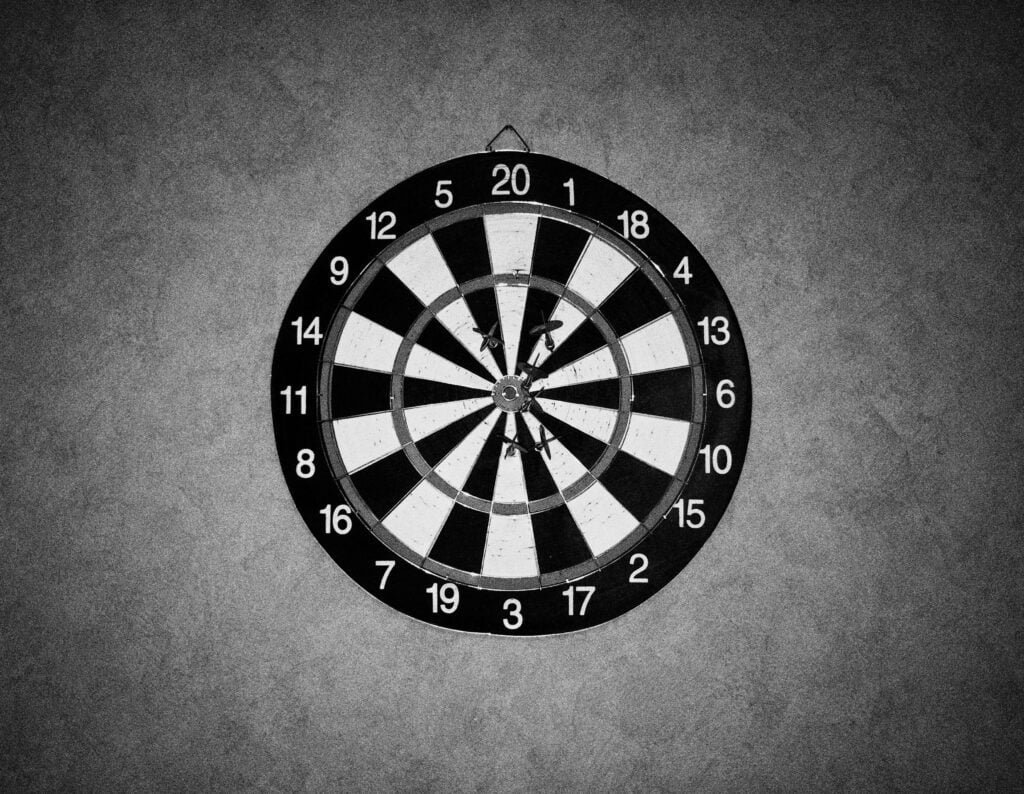Have you ever wondered if there is a link between masturbation and anxiety? It’s a question that many people might hesitate to ask, but it’s a topic worth exploring. In this article “Does Masturbation Cause Anxiety”, we will take a closer look at whether masturbation can indeed cause anxiety, and examine the scientific evidence behind this claim. So, grab a cup of tea, relax, and let’s dive into the fascinating world of self-pleasure and its potential impact on our mental well-being.
Overview of Masturbation
Masturbation, the act of self-stimulating one’s genitals for sexual pleasure, is a natural and common behavior that is prevalent across cultures and societies. It is an intimate and personal act that has been practiced throughout history. In this article, we will delve into the definition of masturbation, the prevalence of this behavior, the psychological and physical effects it may have, as well as address common misconceptions surrounding it.
Definition of Masturbation
Masturbation refers to the deliberate stimulation of one’s own genitals to achieve sexual pleasure. It is a completely normal and healthy behavior that does not require a partner. People engage in masturbation for various reasons, including exploring their own bodies, relieving sexual tension, and experiencing pleasure when a partner is not available or desired. It is an individual choice that can be a part of one’s sexual repertoire.
Prevalence of Masturbation
Masturbation is a highly prevalent behavior, with studies suggesting that the majority of individuals engage in it at some point in their lives. Different cultures and societies have varying attitudes towards masturbation, which can influence its reported prevalence. However, research consistently indicates that masturbation is a common and natural aspect of human sexuality, regardless of cultural or geographical factors.
Psychological and Physical Effects of Masturbation
Contrary to numerous myths and misconceptions, masturbation does not have any harmful psychological or physical effects. In fact, it can have several positive effects on an individual’s overall well-being. From a psychological perspective, masturbation can help relieve stress, boost mood, and provide a healthy outlet for sexual desire. Physically, it can enhance sexual function, improve sleep quality, and release endorphins, which are the body’s natural mood-boosting hormones.
Common Misconceptions about Masturbation
There are several misconceptions and stigmas surrounding masturbation that can lead to feelings of guilt, shame, or anxiety for some individuals. One common myth is that frequent masturbation can lead to physical weakness or fatigue, but there is no scientific evidence supporting this claim. Another misconception is that masturbation is a sinful or immoral act, which stems from cultural, religious, or social beliefs. However, personal beliefs and values may vary, and it is essential to respect individual perspectives without judgment.
Understanding Anxiety
Anxiety is a common emotional and psychological condition characterized by persistent feelings of fear, worry, or unease. It is a normal human response to stress and can vary in intensity and duration. In this section, we will explore the definition of anxiety, its potential causes, the symptoms associated with it, as well as different types of anxiety disorders that individuals may experience.
Definition of Anxiety
Anxiety can be described as a general term encompassing a wide range of emotional and physiological reactions to stressors. It is the body’s natural response to a perceived threat or danger. While some level of anxiety is normal and can be adaptive, excessive or chronic anxiety can significantly impact an individual’s daily life, relationships, and overall well-being.
Causes of Anxiety
The causes of anxiety can be multifaceted, often involving a combination of genetic, environmental, and psychological factors. Some individuals may have a genetic predisposition to anxiety disorders, making them more susceptible to developing anxiety-related symptoms. Environmental stressors, such as traumatic events, significant life changes, or ongoing stress, can also contribute to the development of anxiety.
Symptoms of Anxiety
Anxiety can manifest in a variety of physical, emotional, and cognitive symptoms. Physically, individuals may experience increased heart rate, sweating, trembling, muscle tension, and shortness of breath. Emotionally, anxiety can lead to feelings of restlessness, irritability, or an impending sense of doom. It may also cause difficulties in concentration, sleep disturbances, or intrusive thoughts and worries.
Types of Anxiety Disorders
Anxiety disorders are a group of mental health conditions characterized by excessive and persistent anxiety and fear. There are several types of anxiety disorders, including generalized anxiety disorder (GAD), panic disorder, social anxiety disorder, specific phobias, and post-traumatic stress disorder (PTSD). Each disorder has its own unique set of symptoms and diagnostic criteria, but all involve abnormal levels of anxiety that significantly impact daily functioning.

Exploring Masturbation and Anxiety Connection
The potential connection between masturbation and anxiety has been a topic of interest and discussion. In this section, we will explore anecdotal claims, scientific research findings, the psychological perspective on this connection, as well as the influence of cultural, religious, and social factors on this topic.
Anecdotal Claims
Many individuals have reported experiencing a temporary relief of anxiety symptoms after engaging in masturbation. They describe the release of tension and a sense of relaxation that follows sexual pleasure. However, anecdotal claims should be interpreted with caution, as they are based on personal experiences and may not be applicable to everyone.
Scientific Research on Masturbation and Anxiety
Scientific research on the direct connection between masturbation and anxiety is limited. Most studies have primarily focused on the impact of sexual activity, including masturbation, on general well-being and mental health. While some studies suggest a potential positive influence of sexual activity on anxiety reduction, more research is needed to establish a direct causal relationship between masturbation and anxiety.
Psychological Perspective on Masturbation and Anxiety
From a psychological standpoint, masturbation can provide a temporary distraction from anxious thoughts and feelings. It can serve as a form of self-soothing or coping mechanism, allowing individuals to redirect their attention and focus on physical pleasure. However, it is important to note that using masturbation as the sole or primary method to manage anxiety may not address the underlying causes of anxiety or provide long-term relief.
Cultural, Religious, and Social Influences
Attitudes and beliefs surrounding masturbation can vary significantly across cultures, religions, and societies. For some individuals, cultural or religious teachings may associate guilt, shame, or sinfulness with engaging in masturbation. These beliefs can potentially exacerbate feelings of anxiety or distress related to this behavior. Open and respectful discussions about cultural, religious, and social influences on masturbation are essential to promote understanding and acceptance.
Can Masturbation Actually Cause Anxiety?
While there is no direct causal link between masturbation and anxiety, psychological factors and individual variations in responses can contribute to anxiety symptoms. In this section, we will explore the absence of a direct causal link between masturbation and anxiety, the influence of psychological factors, individual variations in responses, as well as contextual factors that may impact the relationship between masturbation and anxiety.
Absence of Direct Causal Link
Research has not identified a direct causal link between masturbation and anxiety. Masturbation is a normal and healthy sexual behavior, and anxiety is a complex emotional condition with various causes. While some individuals may experience anxiety-related symptoms in relation to masturbation, it is important to consider other psychological and contextual factors that may contribute to these symptoms.
Psychological Factors and Anxiety
Psychological factors such as guilt, shame, or negative beliefs about masturbation can potentially contribute to feelings of anxiety surrounding this behavior. If an individual holds negative attitudes or experiences conflict between their personal values and the act of masturbation, it may lead to heightened anxiety. Addressing these psychological factors through open communication, education, and self-reflection can be beneficial in managing anxiety related to masturbation.
Individual Variations in Responses
Individuals may have different reactions and responses to masturbation due to their unique psychological makeup, past experiences, and personal beliefs. Some individuals may find masturbation to be a pleasurable and anxiety-relieving experience, while others may experience anxiety or guilt associated with this behavior. Understanding and accepting these individual variations is crucial in promoting self-care and fostering a non-judgmental attitude towards diverse sexual behaviors.
Does Masturbation Cause Anxiety: Contextual Factors
The context in which masturbation occurs can also influence its impact on anxiety. For example, if an individual engages in secretive or compulsive masturbation that interferes with daily functioning or relationships, it may lead to heightened anxiety. However, when masturbation is practiced in a consensual, respectful, and balanced manner, it is unlikely to cause or exacerbate anxiety symptoms. Contextual factors should be considered when exploring the relationship between masturbation and anxiety.

The Role of Anxiety in Masturbation
Anxiety can play a significant role in an individual’s experience of masturbation. In this section, we will explore how performance anxiety, body image and self-esteem issues, guilty feelings and shame, as well as the relief of anxiety through masturbation, can influence the relationship between anxiety and masturbation.
Performance Anxiety
Performance anxiety refers to the fear or worry about one’s sexual performance or ability to satisfy a partner. When individuals experience anxiety related to their performance during masturbation, it can inhibit their ability to fully engage in and enjoy the experience. The fear of not achieving orgasm or feeling inadequate can contribute to anxiety during masturbation.
Body Image and Self-Esteem
Negative body image or low self-esteem can also impact the experience of masturbation. If individuals have negative perceptions of their bodies or feel insecure about their appearance, it may lead to heightened anxiety during this intimate act. This anxiety can detract from the pleasure and enjoyment that masturbation can offer.
Guilty Feelings and Shame
Feelings of guilt or shame can arise due to cultural or religious beliefs, personal values, or societal stigma associated with masturbation. These emotions can create a cycle of anxiety surrounding masturbation, as individuals may feel conflicted about their desires or feel as if they are engaging in something morally wrong. It is important to challenge and address these negative emotions through open dialogue and self-acceptance.
Relief of Anxiety through Masturbation
While anxiety can contribute to the experience of masturbation, for many individuals, masturbation can serve as a means of temporarily relieving anxiety symptoms. Engaging in self-stimulation and experiencing sexual pleasure can lead to the release of endorphins, which are natural mood-boosting hormones. This release of endorphins can create a sense of relaxation, reduce stress, and provide a temporary respite from anxiety.
Benefits of Masturbation for Anxiety Relief
Masturbation can offer several benefits for anxiety relief. In this section, we will explore the release of endorphins, relaxation and stress reduction, improvement of sleep quality, as well as an increase in self-awareness and mindfulness as potential advantages of masturbation in managing anxiety.
Release of Endorphins
One of the primary benefits of masturbation for anxiety relief is the release of endorphins. During sexual stimulation and orgasm, the body releases these natural chemicals that promote feelings of pleasure and well-being. Endorphins can counteract the effects of stress hormones, such as cortisol, and induce a sense of relaxation and contentment.
Relaxation and Stress Reduction
Engaging in masturbation can provide a much-needed break from the stresses and pressures of daily life. It offers a time for self-care and self-pleasure, allowing individuals to focus on their own needs and desires. The physical and emotional relaxation experienced during and after masturbation can help reduce stress, alleviate anxiety symptoms, and promote a sense of well-being.
Improvement of Sleep Quality
Anxiety can often disrupt sleep patterns and lead to sleep disturbances. Masturbation, particularly when accompanied by orgasm, releases oxytocin and endorphins, which can promote deep relaxation and induce feelings of sleepiness. Engaging in masturbation before bedtime may help individuals fall asleep more easily and improve the overall quality of their sleep, alleviating anxiety-related sleep issues.
Increase in Self-Awareness and Mindfulness
Masturbation can foster a deeper connection with one’s own body and enhance self-awareness. By exploring one’s own sexual desires, preferences, and responses, individuals can develop a better understanding of their own bodies and sexual needs. This increased self-awareness can empower individuals to communicate their desires, establish healthier boundaries, and engage in self-care, ultimately reducing anxiety and promoting overall well-being.

Masturbation Addiction and Anxiety
While masturbation in moderation is a normal and healthy behavior, excessive or compulsive masturbation can lead to negative consequences on mental health, including increased anxiety. In this section, we will define masturbation addiction, explore the impact of compulsive masturbation on anxiety, as well as discuss treatment and recovery options.
Defining Masturbation Addiction
Masturbation addiction, also known as compulsive masturbation, refers to the uncontrollable or excessive need to engage in masturbation, often to the detriment of one’s physical and mental well-being. It involves persistent and repetitive sexual behaviors that interfere with daily life, relationships, and other important activities. Addiction is characterized by a loss of control, an inability to stop the behavior, and continued indulgence despite negative consequences.
Compulsive Masturbation and Anxiety
Compulsive masturbation can exacerbate anxiety symptoms and contribute to a cyclical pattern of anxiety and sexual behavior. Excessive masturbation may lead to heightened feelings of guilt, shame, or self-blame, which can intensify anxiety. Moreover, the secretive and isolating nature of compulsive masturbation can further contribute to feelings of anxiety and distress.
Impact of Addiction on Mental Health
Addiction, regardless of the substance or behavior involved, can have significant negative impacts on an individual’s mental health. In the case of masturbation addiction, individuals may experience heightened anxiety, depression, low self-esteem, social withdrawal, and difficulties with intimacy. These mental health challenges can worsen if the addiction remains unaddressed or untreated.
Treatment and Recovery
Treating masturbation addiction typically involves a multifaceted approach that addresses underlying psychological factors and provides coping strategies. Therapy, such as cognitive-behavioral therapy (CBT), can be beneficial in identifying and modifying unhealthy patterns of behavior. Support groups, self-help resources, and open communication with trusted individuals can also contribute to the recovery process. It is important to seek professional help when addiction starts to negatively impact one’s well-being and daily functioning.
Managing Anxiety Related to Masturbation
If anxiety related to masturbation becomes a concern, there are various strategies and approaches that can help manage and alleviate these symptoms. In this section, we will explore the importance of open communication and education, seeking professional support, exploring coping mechanisms, as well as developing healthy sexual habits.
Open Communication and Education
Creating an open and safe space for communication about masturbation can be instrumental in managing anxiety related to this topic. Engaging in open discussions with trusted individuals, such as partners, friends, or healthcare professionals, can help dispel myths, address concerns, and normalize the conversation around masturbation. Education about healthy sexual behaviors and understanding personal boundaries can also contribute to reducing anxiety.
Seeking Professional Support
If anxiety surrounding masturbation becomes persistent or significantly impacts daily life, seeking professional support is crucial. Mental health professionals, such as psychologists or counselors, can provide guidance, support, and specialized techniques to manage anxiety symptoms. They can assist in identifying underlying causes and develop personalized strategies to address and overcome anxiety related to masturbation.
Exploring Coping Mechanisms
Developing healthy coping mechanisms is essential in managing anxiety related to masturbation. Engaging in relaxation techniques, such as deep breathing exercises or mindfulness meditation, can help reduce anxiety symptoms that may arise before, during, or after masturbation. Additionally, exploring alternative activities or hobbies that provide stress relief and promote overall well-being can divert attention from anxiety triggers.
Developing Healthy Sexual Habits
Developing healthy sexual habits involves finding a balance that aligns with personal values, desires, and psychological well-being. It is essential to explore and understand personal boundaries, engage in consensual activities, and prioritize communication and respect in sexual relationships. By fostering a healthy approach to sexuality and masturbation, individuals can reduce anxiety and promote a positive relationship with their own bodies.
Conclusion of Does Masturbation Cause Anxiety
In conclusion, the relationship between masturbation and anxiety is complex and multifaceted. While there is no direct causal link between masturbation and anxiety, psychological factors, individual variations in responses, as well as contextual factors, can influence the experience of anxiety related to masturbation. Masturbation can provide temporary relief from anxiety symptoms, thanks to the release of endorphins and the relaxation it offers. However, excessive or compulsive masturbation can exacerbate anxiety and have negative impacts on mental health.
It is important to approach masturbation with open-mindedness, understanding, and self-care. Managing anxiety related to masturbation involves open communication, seeking professional support when necessary, exploring coping mechanisms, and developing healthy sexual habits. Remember, individual experiences and perspectives may vary, and it is crucial to prioritize self-exploration and self-care in navigating one’s own sexual journey.
Frequently Asked Questions:
1. Does masturbation decrease testosterone? No, moderate masturbation does not significantly impact testosterone levels; it is a natural and healthy part of human sexuality.
2. Does masturbation decrease strength? No, there is no scientific evidence supporting a direct link between masturbation and decreased physical strength.
3. Ways to stop anxiety fast? While there’s no instant solution, techniques such as deep breathing, mindfulness, and exercise can help alleviate anxiety.
4. Can masturbation cause heart problems? No, there is no conclusive evidence suggesting a direct link between masturbation and heart problems.
5. Can masturbation cause nerve damage? No, routine masturbation is not associated with nerve damage; it is generally a safe and normal activity.
6. Does masturbation cause weight loss? No, there is no scientific basis for the claim that masturbation directly causes weight loss.
7. Causes of masturbation? Masturbation is a normal and healthy sexual activity that is part of human sexuality and often begins during adolescence.
8. Masturbation and mental health? In moderation, masturbation is not harmful to mental health and can, in fact, have positive effects by promoting relaxation and stress relief.
More on Masturbation and Anxiety here.
